Results
-
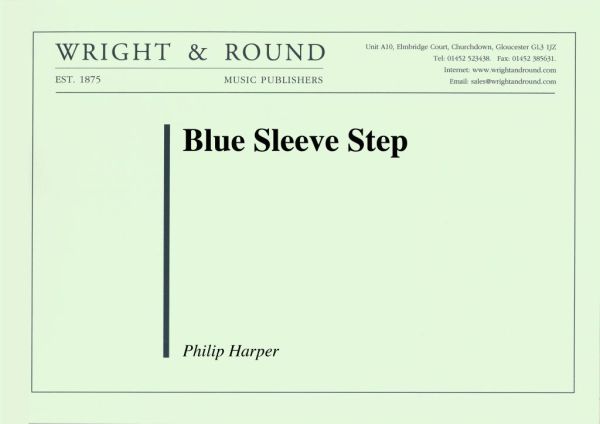 £40.00
£40.00Blue-Sleeve Step (Score and Parts)
This is a big band style number which is modelled on Barrie Gott's brilliant Lightwalk. It begins with a walking bass before horns state the highly whistleable tune for the first time. The full band quickly joins and there is an extended solo break for cornet. A tiptoeing tuba solo precedes the final key change which propels the piece to its infectiously foot-tapping conclusion.
Estimated dispatch 7-14 working days
-
£54.20
Do They Know It's Christmas
This song was written in 1984 to raise money for famine relief in Ethiopia and performed by Band Aid, a group made up of leading British and Irish musicians. The single sold over a million copies in its first week of sales.
Estimated dispatch 7-14 working days
-
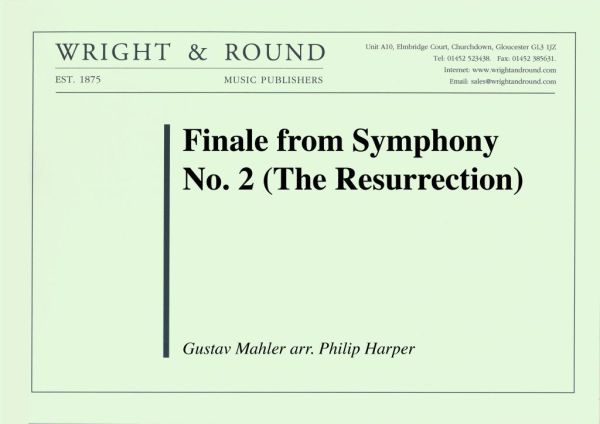 £38.00
£38.00Finale from Symphony No. 2 (The Resurrection)
One of the most life-affirming pieces of music ever composed, Mahler's 2nd Symphony, subtitled 'The Resurrection', was first performed in Berlin in 1895. Mahler's interest in the mysteries of the afterlife is well-known and is a recurring theme through
Estimated dispatch 7-14 working days
-
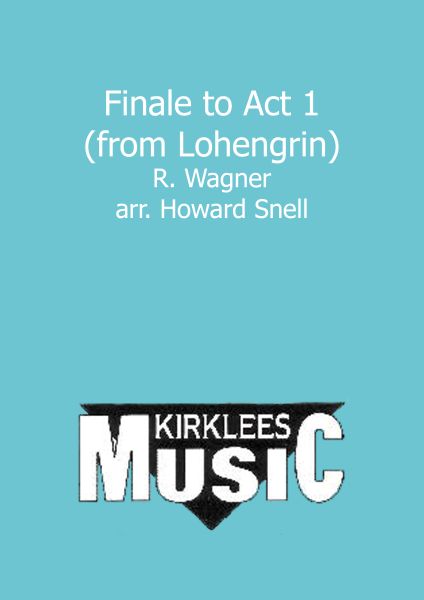 £31.50
£31.50Finale to Act 1 (from Lohengrin)
Authentic Wagner ceremonial and power is presented here, in bringing the first Act of Lohengrin to a close. This excerpt can be used as a prelude to Procession to the Minster (from Act 2) or as a companion to the Wedding March as heard in Act 3.
Estimated dispatch 7-14 working days
-
£50.90
Let It Snow
Ironically, this song was written in California on one of the hottest days on record! First recorded in 1945 by Vaugn Monroe, it has since been recorded by artists such as Frank Sinatra, Andy Williams, Michael Buble and Rod Stewart.
Estimated dispatch 7-14 working days
-
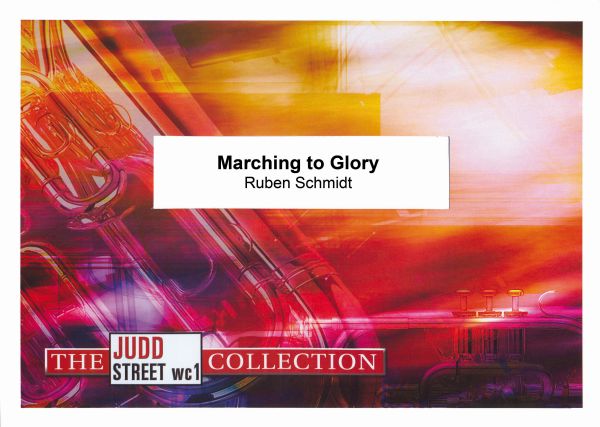 £14.95
£14.95Marching to Glory (Score Only)
This energetic piece focusses on the Christian's life goal of 'marching home to Glory' which is described in the first verse of William James Pearson's song.We are marching home to Glory, Marching up to mansions bright,Where bright golden harps are playing,Where the saints are robed in white.There's a golden harp in Glory,There's a spotless robe for you;March with us to the hallelujah city,To the land beyond the blue.
Estimated dispatch 7-14 working days
-
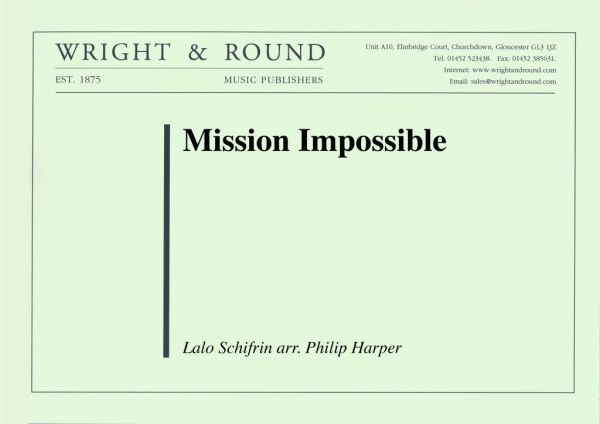 £33.00
£33.00Mission Impossible (Score and Parts)
The main theme from the first film. The constant 10/8 rhythm is very effective combined with the ever changing dynamic lines that sit on top.
Estimated dispatch 7-14 working days
-
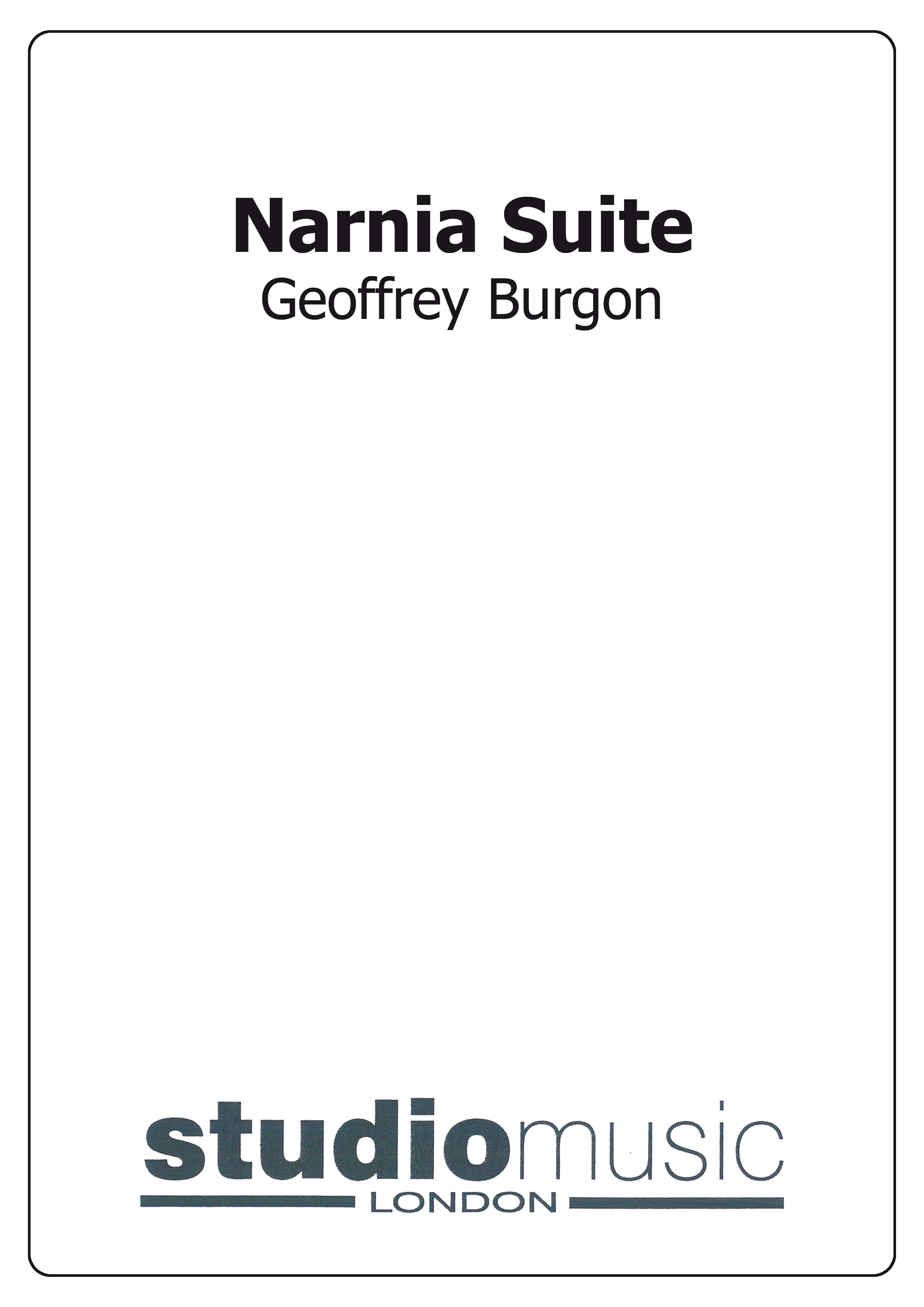 £37.95
£37.95Narnia Suite (Score Only)
Narnia Suite is made from the incidental music written by Geoffrey Burgon for the BBC Television series The Chronicles of Narnia, based upon C.S. Lewis's series of seven novels, the first and most well-known being The Lion, the Witch and the Wardrobe.
Estimated dispatch 7-14 working days
-
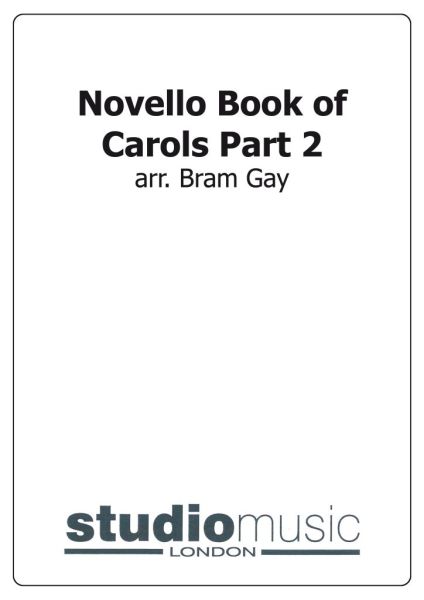 £87.95
£87.95Novello Book of Carols Part 2
Includes: O Come, All ye Faithful; Once in Royal David's City; The Twelve Days of Christmas; London Waits; Silent Night; The First Nowell; The Holly and the Ivy; The Shepherd's Farewell.
Estimated dispatch 7-14 working days
-
£37.95
Oceans (Score Only)
Commissioned by the West of England Bandmen's Festival, with valuable support from South West Arts, for first performance at the Sixtieth Anniversary Festival at Bugle, Cornwall, 1984
Estimated dispatch 7-14 working days
